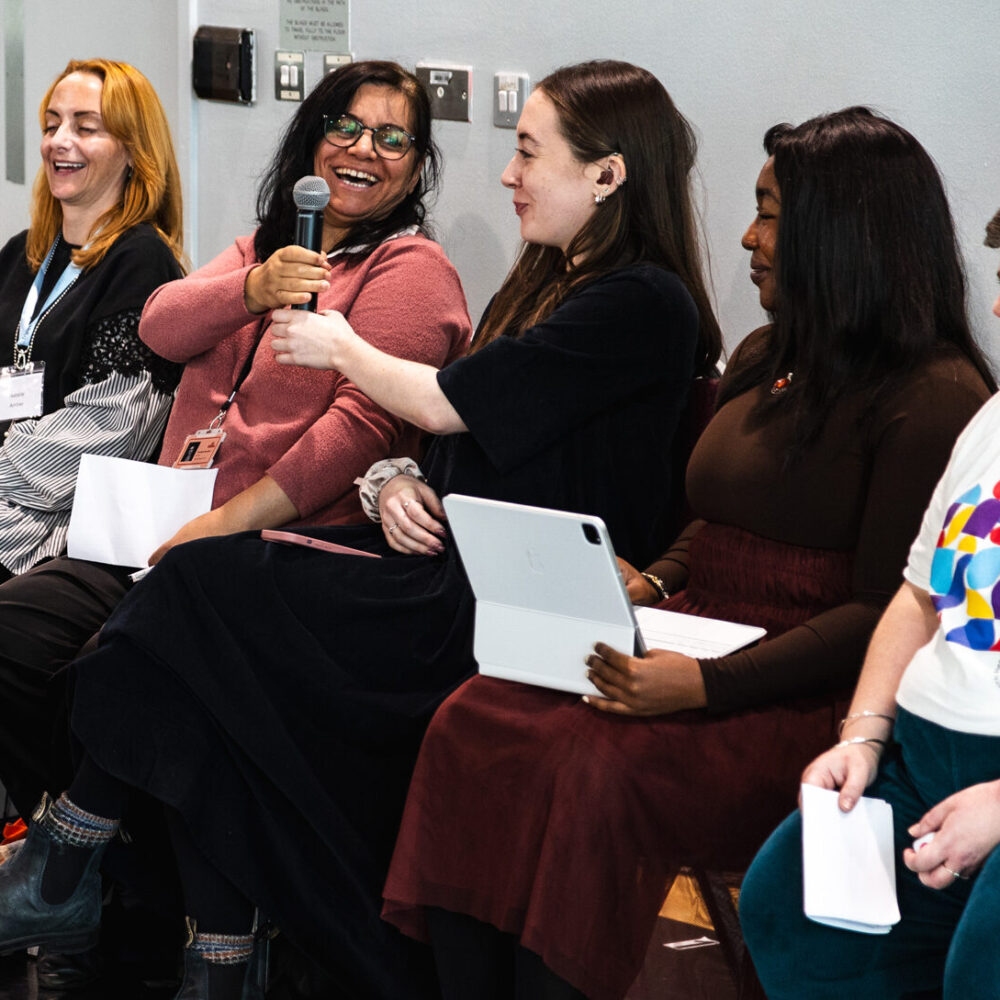


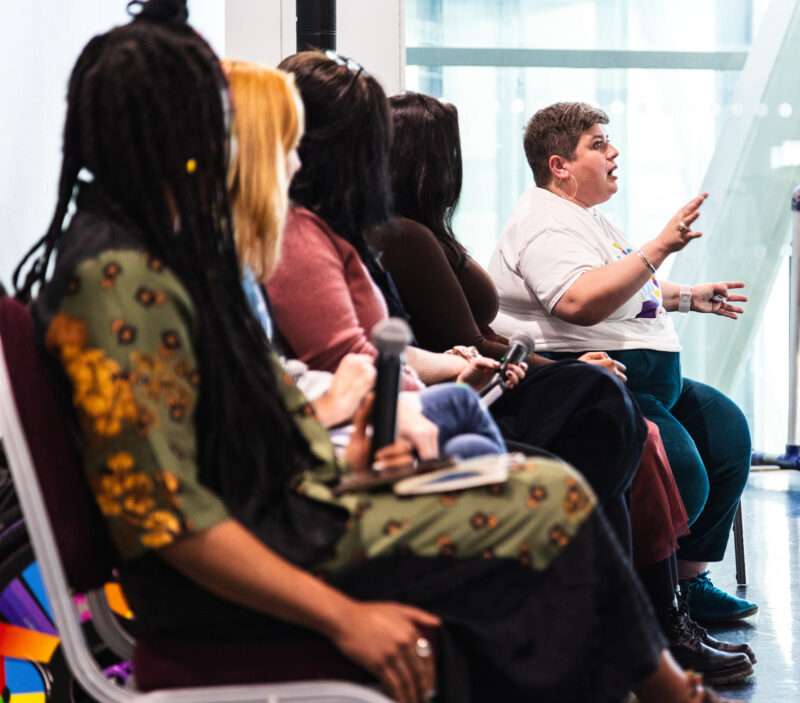
We ended Forward Together with a top tips access panel hosted by Keisha Thompson and with guests Fereshteh Mozaffari from Sheba Arts, Natalie Amber from Triple C Creative, Performer Katie Erich, Sarah Emmott from Art with Heart and Ada Eravarma.
Our panel of access experts shared their top tips for navigating the arts, culture, and care, all informed by their lived experience.
Led by Keisha, the panel explored access and inclusion for various communities that are often systematically excluded, and we wanted to share each panellist’s top tips.
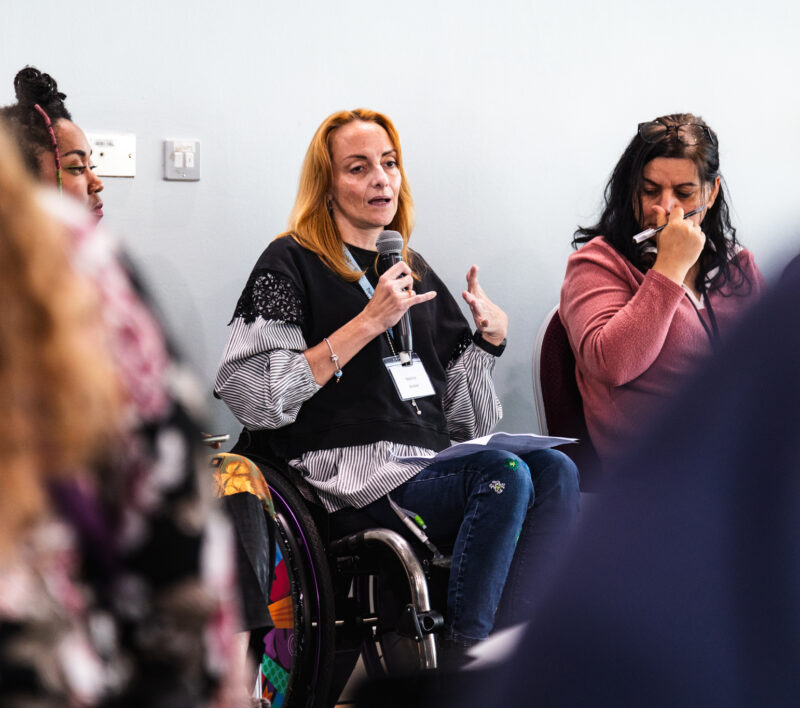
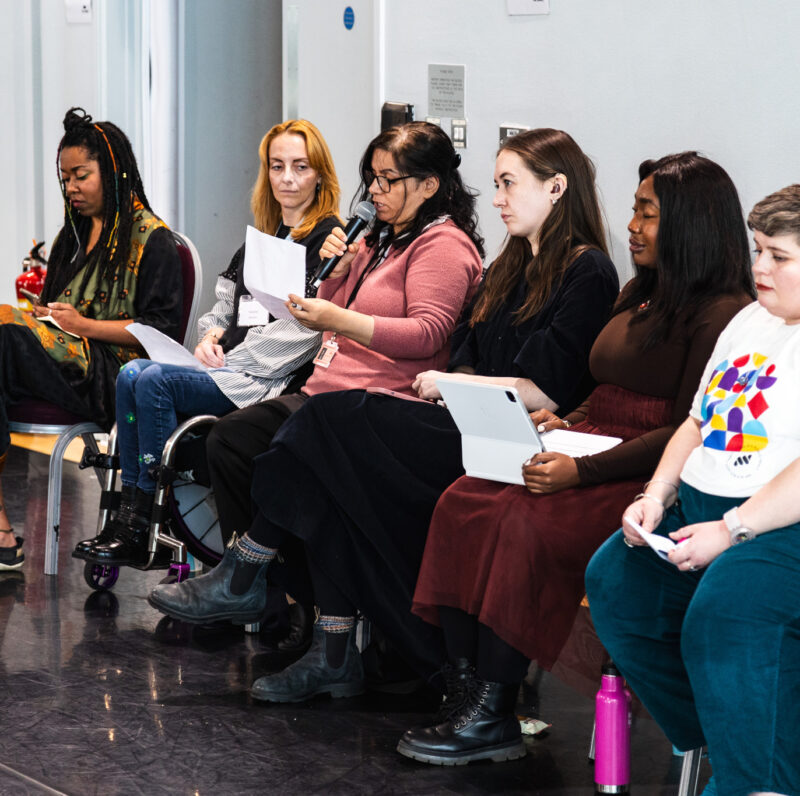
Fereshteh Mozaffari is a writer and the founder and Artistic Director of Sheba Arts. With a background in political journalism in her home country, Fereshteh started a new life in the UK as an artist. She has produced festivals and arts projects with different migrant and refugee communities across Greater Manchester.
Katie is a Deaf actor who uses both spoken English and British Sign Language. Katie works as a captioning and access consultant, and is currently part of an ongoing Artist Panel with Vital Xposure. Credits include Richard III (Shakespeare’s Globe), Wind in the Willows (Shakespeare North Playhouse), Julius Caesar (Royal Shakespeare Company), The Gruffalo (Tall Stories), The Solid Life of Sugar Water (The Orange Tree Theatre), Doctors (BBC), The Book Eaters (Audiobook).
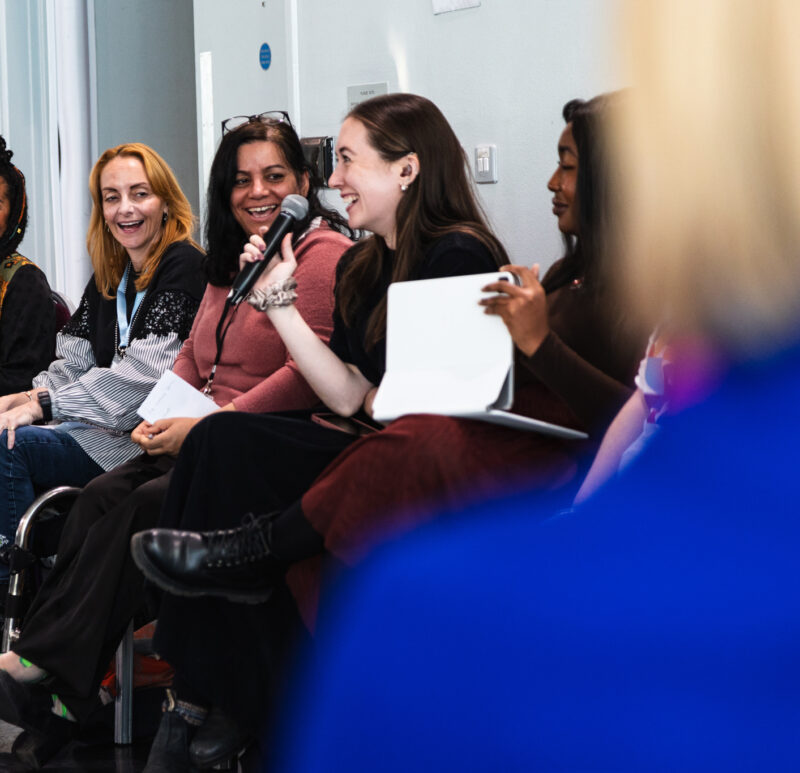
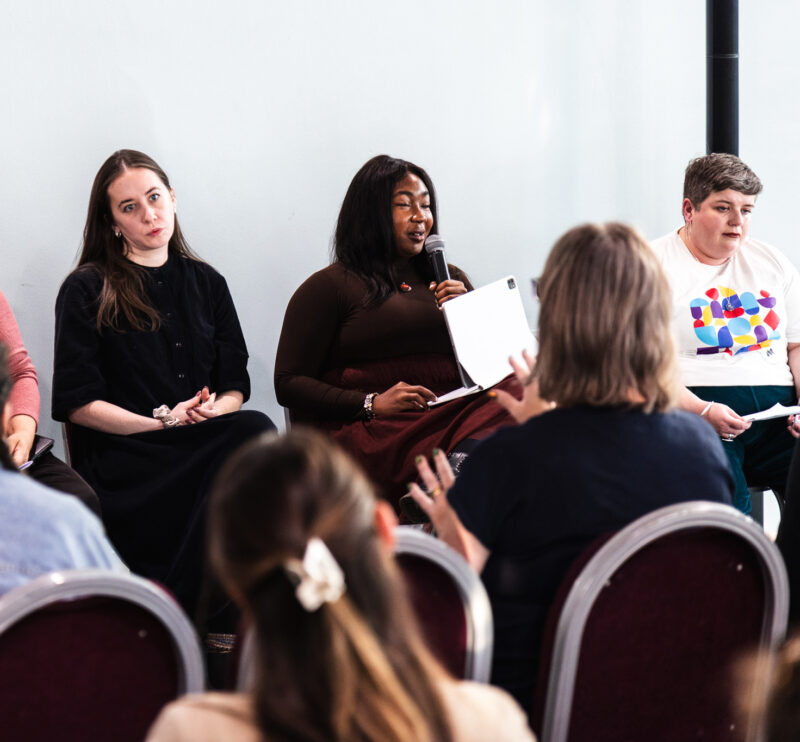
Ada is a Black British woman of West African descent. A theatre maker for over 10 years and visually impaired for longer. She specialises in creative audio description and access consultation. Ada is passionate that culture and theatrical experiences are accessible to visually impaired and disabled audiences and artist. Ada has worked with CRIPtic Arts, Alice Christina Corrigan, The National Youth Theatre and Rope Ladder Fiction
Sarah Emmott is the Co-Creative Director of Art with Heart with nearly 20 years of experience as a producer, writer, performer and facilitator. She is the lead fundraiser for Art with Heart and has gained funding from from public, private and crowd sourced funding sources. As a neurodivergent, working class, queer woman, Sarah brings her own lived experience to the work she does and is passionate about the grant funding process being more accessible.
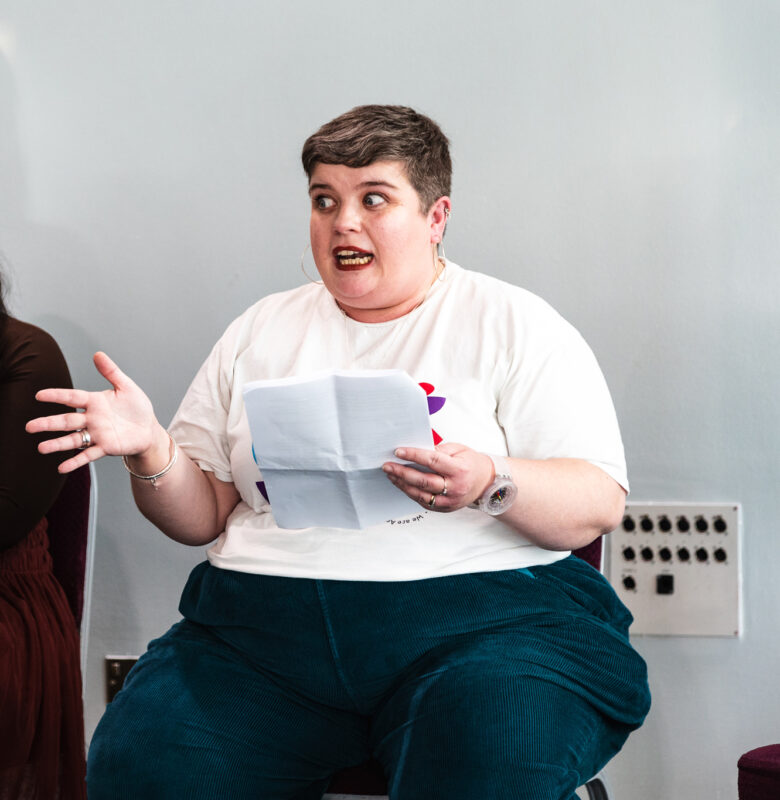
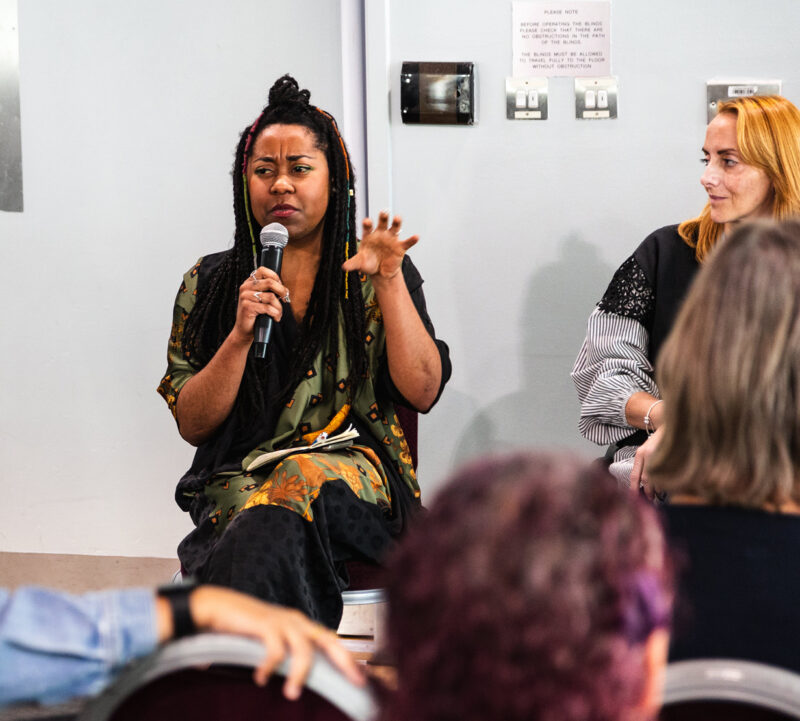
Keisha Thompson FRSA is a Manchester based writer, performance artist and producer. She is Co-Chair of the Independent Theatre Council, a trustee of Olympias Music Foundation and recipient of the DARE Art Prize 2024 from Opera North and the University of Leeds in association with National Science and Media Museum and The Tetley.
An afternoon of access, inclusion and action, led by Art with Heart, The Lowry and leading access experts and creatives.
We are Art with Heart, and we want to bring together as many people as possible to unlock their creativity and connection to each other. As a registered charity (1205611), donations make it possible to deliver accessible, representative and inclusive projects, to engage more people, employ more freelancers and plan further into the future. Together, we are building Art with Heart, we would love you to join us! CLICK HERE to donate through our Ko-fi campaign.